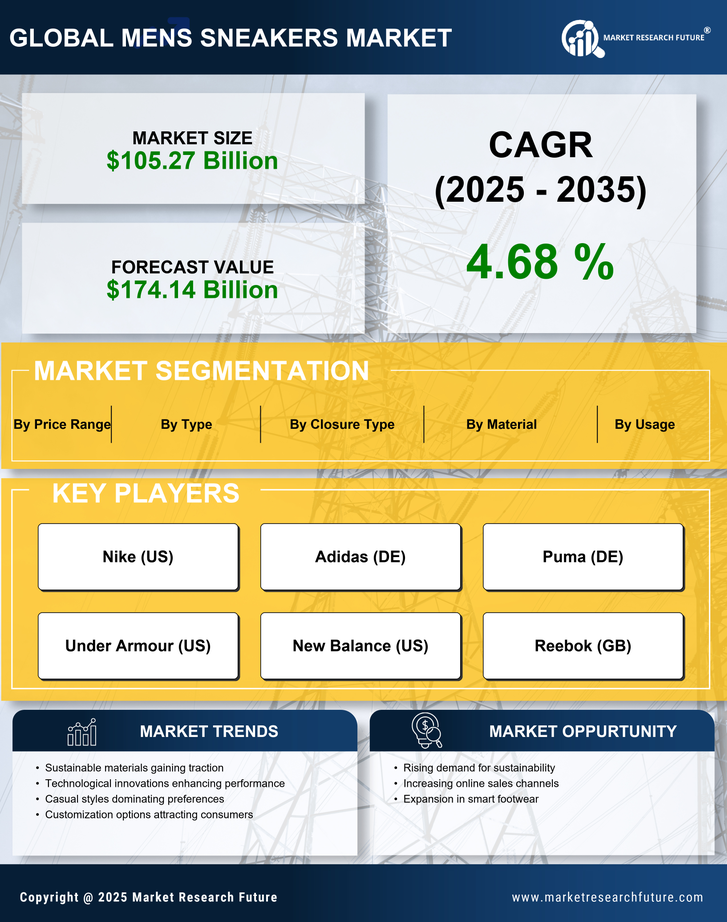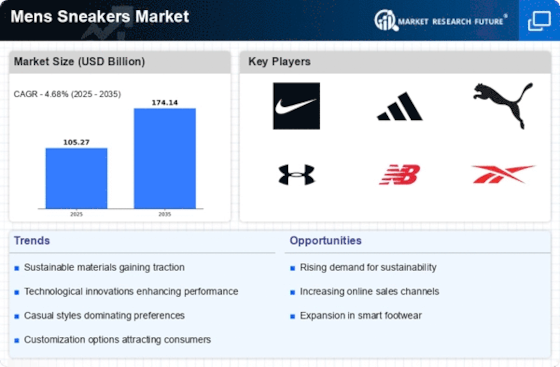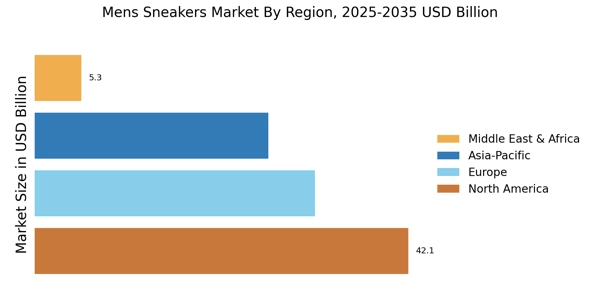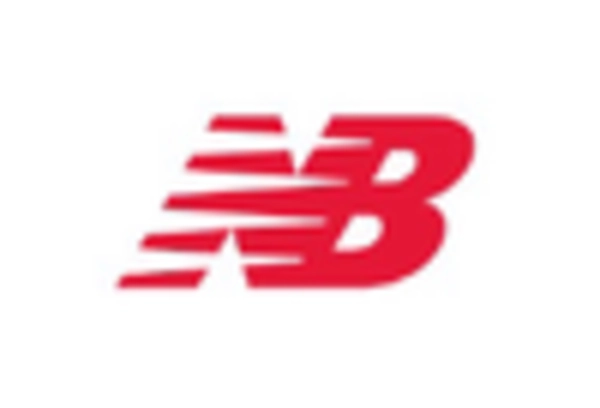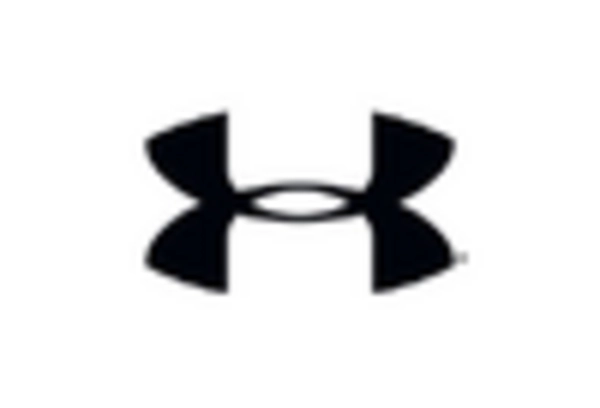E-commerce Expansion
The Mens Sneakers Market is significantly impacted by the rapid expansion of e-commerce platforms. As consumers increasingly turn to online shopping for convenience and variety, brands are adapting their strategies to enhance their digital presence. In 2025, online sales of footwear are projected to account for over 30% of total sales, indicating a shift in consumer behavior. This trend allows brands to reach a broader audience and cater to diverse preferences, ultimately driving sales growth. Furthermore, the ability to leverage data analytics enables companies to tailor their offerings, ensuring that they meet the evolving demands of consumers in the Mens Sneakers Market.
Sustainability Initiatives
The Mens Sneakers Market is increasingly shaped by sustainability initiatives as consumers become more environmentally conscious. Brands are responding to this shift by incorporating eco-friendly materials and ethical manufacturing practices into their product lines. This trend is reflected in the growing demand for sustainable footwear, with a projected market growth rate of 10% annually. Companies that prioritize sustainability not only appeal to a broader audience but also enhance their brand image, fostering loyalty among environmentally aware consumers. As the Mens Sneakers Market evolves, the integration of sustainable practices is likely to become a key differentiator for brands seeking to capture market share.
Rising Health Consciousness
The Mens Sneakers Market experiences a notable surge in demand driven by an increasing awareness of health and fitness among consumers. As individuals prioritize physical well-being, the need for comfortable and supportive footwear becomes paramount. This trend is reflected in the growing participation in sports and fitness activities, which has led to a projected increase in athletic footwear sales. In fact, the market for men's athletic shoes is expected to reach approximately 20 billion dollars by 2026. This heightened focus on health not only influences purchasing decisions but also encourages brands to innovate in terms of design and functionality, thereby enhancing the overall appeal of products within the Mens Sneakers Market.
Influence of Celebrity Endorsements
The Mens Sneakers Market is notably influenced by celebrity endorsements and collaborations, which play a crucial role in shaping consumer preferences. High-profile athletes and celebrities often serve as brand ambassadors, creating a strong association between their personal style and the products they endorse. This phenomenon not only enhances brand visibility but also drives consumer interest and loyalty. For instance, collaborations between sneaker brands and popular figures have led to limited edition releases that generate significant buzz and demand. As a result, the Mens Sneakers Market continues to thrive, with brands leveraging these partnerships to attract a younger demographic and maintain relevance in a competitive landscape.
Technological Advancements in Footwear
The Mens Sneakers Market is witnessing a wave of technological advancements that enhance the performance and comfort of footwear. Innovations such as 3D printing, smart materials, and advanced cushioning systems are transforming the way sneakers are designed and manufactured. These technologies not only improve the functionality of the shoes but also cater to the specific needs of athletes and casual wearers alike. As a result, the market is expected to see a rise in demand for high-performance sneakers, with projections indicating a growth rate of 8% annually. This emphasis on technology positions brands within the Mens Sneakers Market to differentiate themselves and attract a diverse consumer base.
